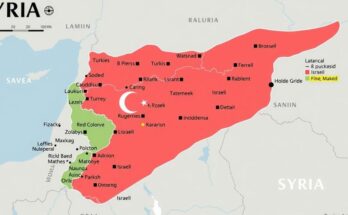Central Asian migrants, previously reliant on Russia for work, are increasingly seeking opportunities in East Asia and the West due to a stagnant Russian economy and rising hostilities. While salaries may be better, challenges such as job mobility, language barriers, and scams have emerged. Reports indicate a notable increase in remittances from countries like South Korea, despite a significant number of migrants living illegally and facing risks. Individuals have become victims of scams under false job promises in Western nations.
Over the years, millions of Central Asian workers have left their homes seeking employment opportunities in Russia. However, the current economic stagnation and growing hostility towards migrants in Russia have prompted many to explore job prospects in East Asia and the West. Although salaries may be higher in these new locations, substantial challenges arise, including difficulty in job transitions, language barriers, and cultural differences.
Sanat Zhusipbek, who migrated from Kazakhstan to South Korea in 2017 for better wages, is currently facing hardships due to the political instability and economic slowdown in South Korea, resulting in lower orders and earnings. Despite his struggles, he remains unwilling to return to Kazakhstan, where the national currency continues to lose value amidst slow growth.
Russia has traditionally been a primary destination for Central Asian workers due to the lack of opportunities in their home countries. Nonetheless, factors such as the ongoing conflict in Ukraine and resulting international sanctions have significantly weakened Russia’s appeal. The subsequent depreciation of the ruble and a surge in deportations of Central Asian migrants following a recent terrorist attack have further decreased their inclination to stay.
A visible shift is occurring, with more migrants seeking employment in South Korea. The Uzbek Central Bank noted a significant increase in remittances sent home by Uzbek workers in South Korea, indicating a growing trend. Simultaneously, around 100,000 Uzbeks are currently employed in the East Asian nation. However, officials have cautioned that a substantial number of these workers are residing illegally, potentially jeopardizing their job opportunities. The migration of workers to Western countries is also rising, although the growing prevalence of scams targeting these migrants remains a critical concern.
Numerous individuals have reported falling victim to fraudulent job offers in Western nations. For example, an Uzbek man named Bakhodir lost approximately 1,000 euros after being misled by a scammer posing as a recruitment agent. Similarly, Doston Mustafoyev indicated that he lost a staggering $20,000 to a scam involving a false promise of employment in the United States.
These migration trends bring both opportunity and challenge for Central Asian workers, as they navigate the complexities of seeking better lives abroad while confronting financial and legal risks.
The phenomenon of migration from Central Asia, particularly toward Russia, has been a longstanding issue, primarily driven by the region’s struggling economies and a youthful population seeking better employment prospects. However, current geopolitical dynamics, including Russia’s involvement in Ukraine, economic sanctions affecting the nation, and rising local tensions against migrant workers, have necessitated a reevaluation of traditional migration patterns. As a result, migrants are increasingly turning their attention to other destinations, notably South Korea and various Western countries, despite facing new challenges.
The ongoing changes in migration patterns among Central Asian workers reflect a complex interplay of economic factors and growing global uncertainties. As regions such as Russia become less viable for employment, migrants are seeking opportunities in South Korea and Western countries but must navigate a myriad of challenges, including language barriers, cultural differences, and increased risks of scams. The enduring pursuit of better livelihoods continues to underscore the resilience of Central Asian workers as they adapt to shifting circumstances.
Original Source: www.rferl.org




